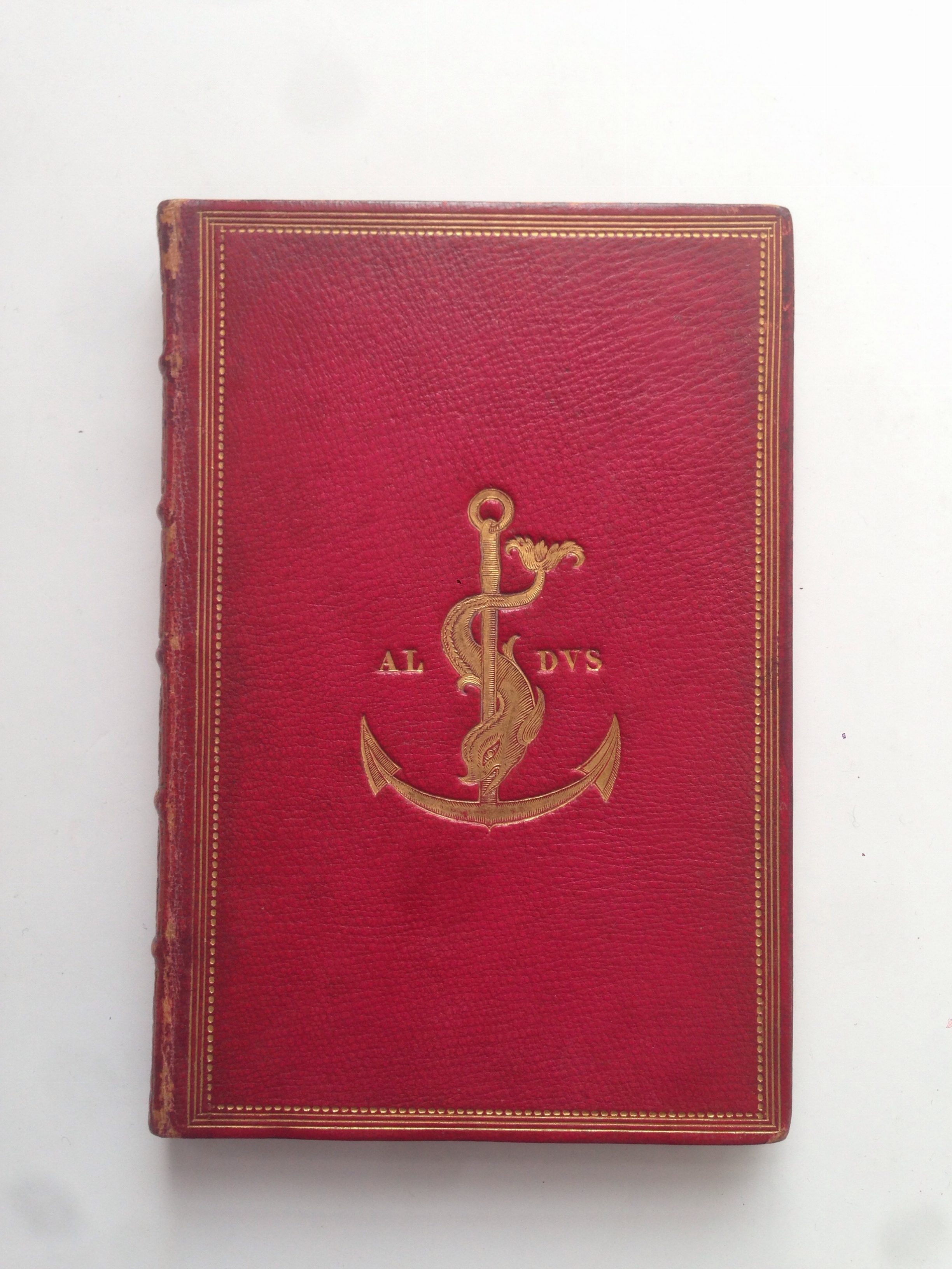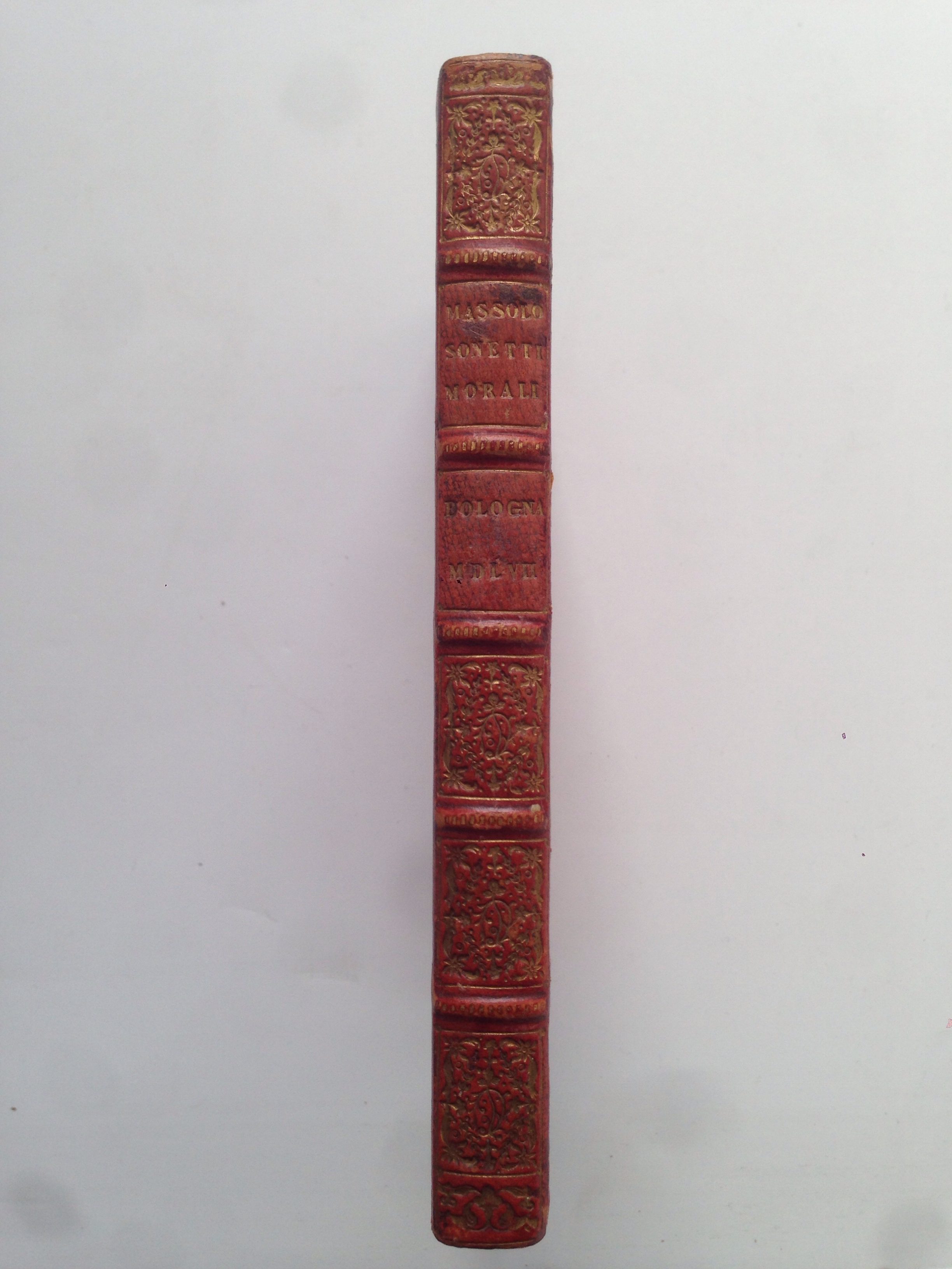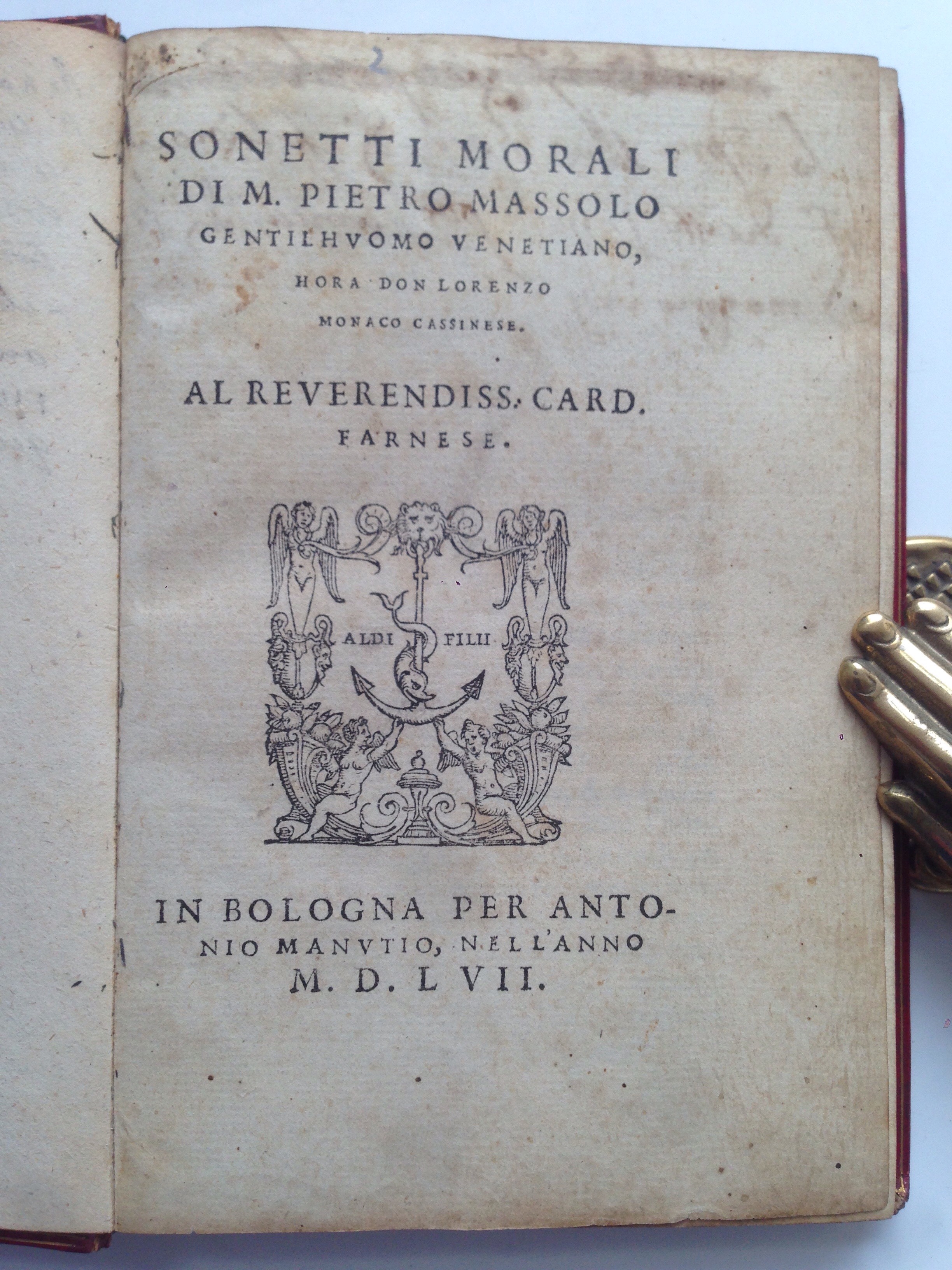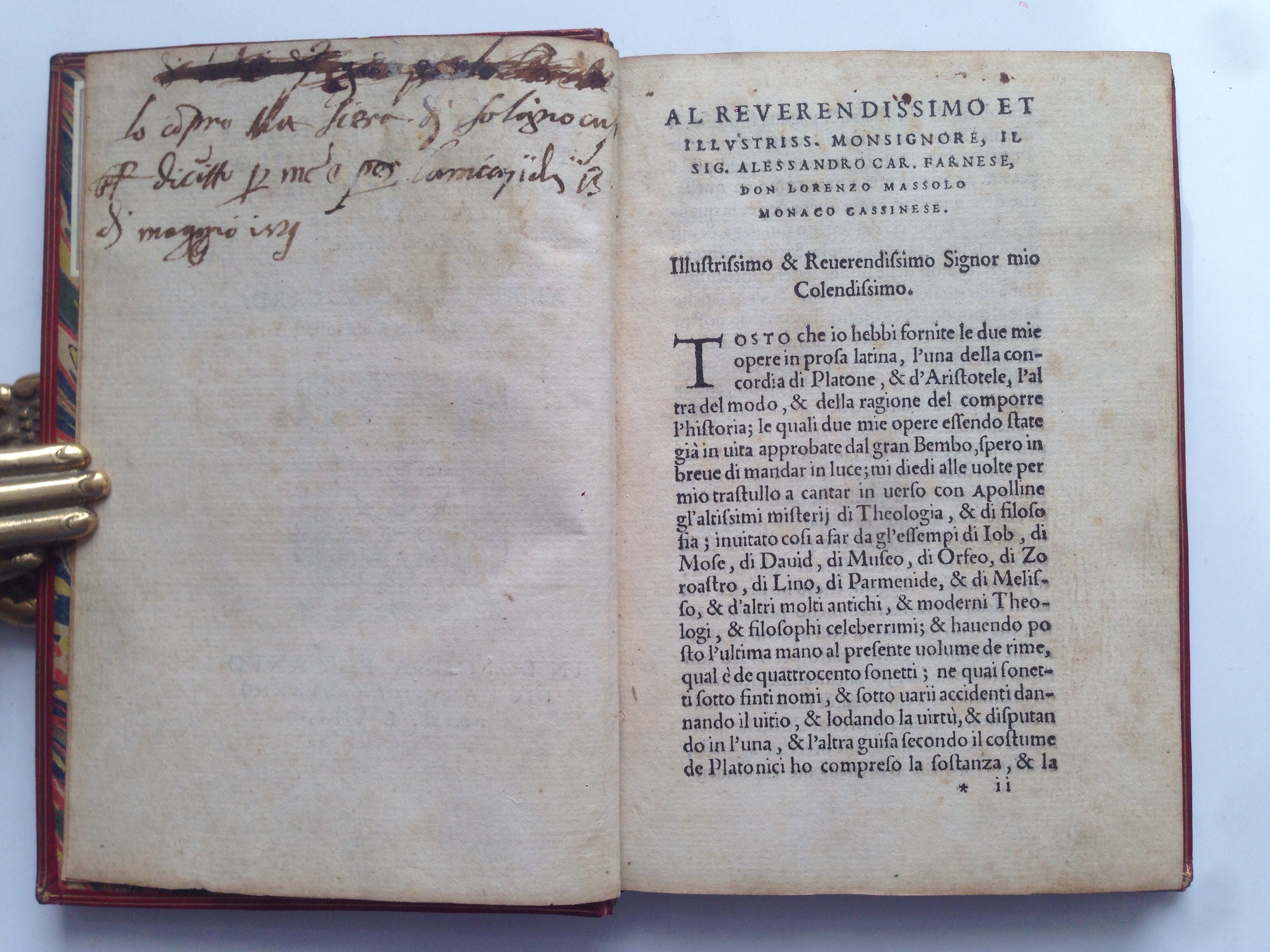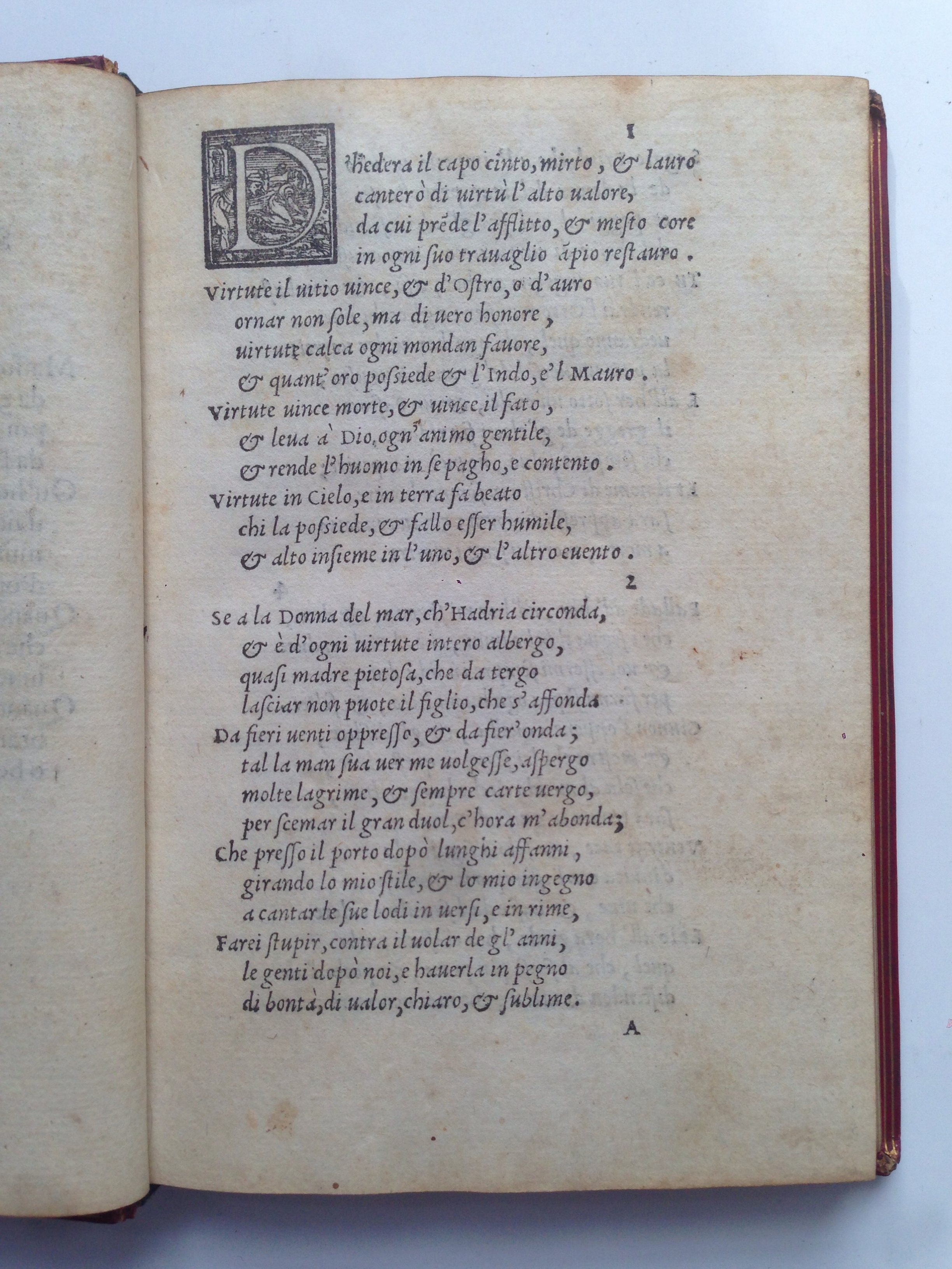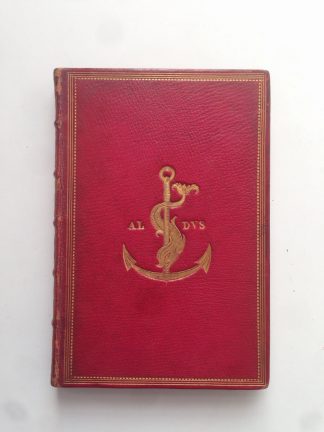MASSOLO, Pietro
Sonetti morali
Bologna, Antonio Manuzio, 1557£4,500.00
FIRST and ONLY ALDINE EDITION. 8vo, ff. 116. Sonnets 305-06 mis-numbered. Roman and Italic letter, Aldine woodcut device on title page and last verso, one historiated initial. Title page a little browned, light age yellowing and some light foxing. A good copy in elegant early C19 English red morocco, gilt anchor on cover, bordered with quadruple gilt rule, gilt title to spine, raised bands in compartments with gilt floral motifs, marbled endpapers, a. e. g.; slightly rubbed. Two C19th bookplates to front pastedown, one with monogram TP, the other of Bernard Sancholle-Henraux. Contemporary inscription in Italian to verso of t-p mentioning the purchase of this book in Foligno in May 1579; marginalia (maniculae) in a few places and faded autograph to last recto.
First edition of Pietro Massolo’s collected poems, and one of the few published by Antonio Manuzio in Bologna between 1556 and 1557 (Ascarelli-Menato, p. 60). Pietro (1520-1590) was son of Lorenzo Massolo and Elisabetta Querini, the beautiful noblewoman praised by Bembo and portrayed by Titian. In 1537, shortly after the marriage, for unknown reasons Pietro murdered his wife, the young daughter of Stefano Tiepolo, a senator and procurator of Venice. To expiate his crime, he found refuge in the Convent of San Benedetto in Mantua and became a monk with the cloister name of Lorenzo, in the Congregation of Monte Cassino. He met the most learned men of his age and composed numerous poems.
The work is dedicated to Cardinal Alessandro Farnese and consists of 400 sonnets addressed to different historical personalities. Among them are politicians (the Emperor Carlo V; Vittoria Colonna, Marchioness of Pescara; Cosimo de’ Medici, Duke of Florence; Henry, King of France; Lorenzo Priuli, Governor of Venice; Ferdinand Hapsburg); religious (Daniele Barbaro, Patriarch of Aquileia; Giovanni della Casa, Archbishop of Benevento; Pope Paul III) and scholars (Annibal Caro, Sperone Speroni, Pontano, Lodovico Dolce, Girolamo Ruscelli, Lodovico Castelvetro, Gian Giorgio Trissino, Benedetto Varchi). The volume also includes sonnets devoted to Pietro Massolo’s parents (322) and to his father-in-law, the Captain Stefano Tiepolo (302), honoured for his military successes against the Ottoman Empire. They seem to have forgiven his crime. The second part (372-400) includes funeral poems for Pietro Bembo and other friends and relatives, such as his wife, where the author reveals his intensive suffering and repentance (P. Molmelli, “Un poeta uxuricida del secolo XVI”, in “Nuova Antologia”, 151, 7, 1927: 129-141). Pietro Massolo was the first author to use the term “moral” in a poetical book title. Expanding on Petrarch’s model and mainly focusing on moral and religious contents, his work reflected the new trends of the post-Tridentine age, which absorbed the contemporary culture into the Catholic cosmos. The book contains a deep meditation on mortality and combines the genres of courtly praise, penitential speech and moral satire, with quotations from Petrarch, Bembo, Della Casa and many other philosophical and classical sources. Several sonnets concern the topic of Virtue which conquers Death and Fate, making men closer to God, especially the first, which serves as an introduction to the entire collection. Others describe the Stoic figure of the Wise Man (Christian hero), free from Fear and Desire, or deal with spiritual values (knowledge, happiness, poverty and freedom), as well as with the issue of life after death. Most interesting are sonnets on the cities of Venice (2), the poet’s mother land, compared to a pitiful mother, and Rome (92), decadent Empress of the World. Sonnet 299 is a patriotic exhortation to Italy, the servant of many peoples, to wake up from her long sleep and rebel against her enemies.
Adams, M 865; BM STC It., 425; Brunet, III, 1521; Renouard 172:14. Not in Gamba. Not in Fontanini.In stock


